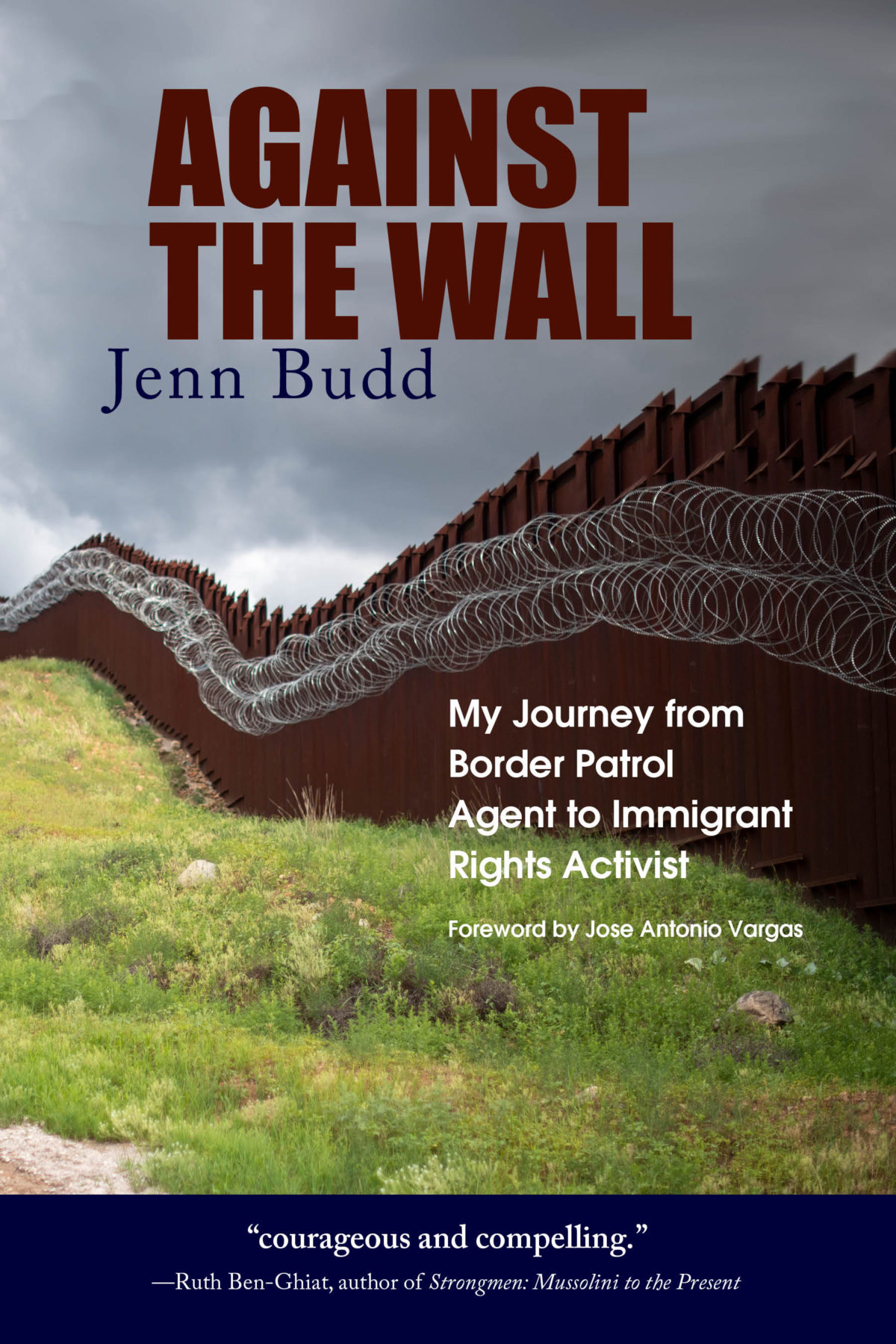People will read and discuss Jenn Budd’s memoir, Against the Wall: My Journey from Border Patrol Agent to Immigrant Rights Activist, as monumental. Yes, it’s a confession. It’s also a witness statement, a testimony. Yes, it’s a horror story about survival and state-sponsored violence. But it’s also about guilt—about finding a way to escape cruelty, about finding a way to live with honor.
“What the Border Patrol and its agents do not understand is that there is no honor in abusing people, in treating them inhumanely,” Budd writes. In Against the Wall, we see that it is not just these actions that are dishonorable, but the institution’s existence. There is its rape culture, its violence against women, its racism. And there is its inhuman treatment of families: the hunting and killing of migrants, the upholding of federal policies that have led thousands of people to their deaths in the desert.
Budd, a former U.S. Border Patrol senior agent, writes her testimony in three parts, tracing memories of her upbringing and family across the book. The first section recounts her time at the Federal Law Enforcement Training Center in Glynco, Georgia and her work as an agent in Campo, California.
But make no mistake: this memoir is a horror story from the start. Each encounter and situation presents a new set of atrocities. After leaving training, she hunts and processes migrants at the U.S.-Mexico border and witnesses their abuse. At the same time, Budd herself is a victim—harassed, endangered, and assaulted by her coworkers and supervisors.
At the conclusion of the first section, Budd leaves the Border Patrol. Some of the most thoughtful scenes of the book take place in the following section, as she reels from her six years of service. It is now clear: There was no honor. The Patrol stripped agents of any honor they may have ever had.
After she leaves the service, Budd’s childhood abuse and trauma resurface. It is a collision of these two which leads to a near-fatal suicide attempt. But as she recovers, her mind clears and her confidence grows. Through a number of interactions with activists, organizers, religious leaders, and lawyers, she decides on a new path: to help and not hurt.
She gets involved with human rights organizations. She learns from victims who suffered torture and abuse at the hands of her former colleagues. She listens to people whose family members had been murdered by the Border Patrol. Budd speaks about how an agent at the academy raped her, and about the pervasive rape culture enforced by and protected within the U.S. Border Patrol.
“I never expected to arrest families, women, and children who were not criminals but simply needed help to survive,” Budd writes. “I didn’t expect that my rape was more than an anomaly, but part of a large rape culture instigated and protected by generations of agents. I didn’t realize that I’d join a criminal organization disguised as a federal law enforcement agency. I didn’t expect to become a member of a deeply racist agency. I didn’t know any of it until it was too late, until I lost myself and my soul became untethered.”
Budd’s memoir makes a clear statement. If anyone wants to know what lawlessness, violence, and chaos is, it is not the border, and it is not the people who cross it. It is the Border Patrol itself: its lawlessness in the field, its flagrant violation of international and national human rights laws. And it is the politicians who write, promote, and pass laws that allow such atrocities to occur, the politicians who look the other way as murder, rape, torture, and death are dealt out—and double down when it’s time for an election.
With her memoir, Budd has managed to present the reality of the U.S. Border Patrol. But over the course of Against the Wall, she looks beyond our present reality, moving from a horror story to a recovery, and then to the work required to create a more just and humane world. As she recounts her changing path, her literary voice strengthens.
But Budd explains herself most clearly when she tells us that there is only one way to end the violence. “If we are to live up to the core values of a democracy,” she writes, “the United States Border Patrol must be abolished.”
Jenn Budd, Against the Wall: My Journey from Border Patrol Agent to Immigrant Rights Activist. $20 (paperback). Heliotrope Books, 2022. 332 pages.
Samuel du Bois is a writer represented by Craig Literary. He recently completed his novel, Turnstiles.

